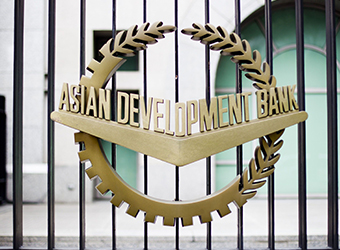The Asian Infrastructure Investment Bank (AIIB) announced Tuesday as much as $210 million in debt financing in order to “tap” the renewable energy in Egypt.
In a statement on Tuesday, the Beijing headquartered AIIB said the project would include 11 solar power plants with an “aggregate” capacity of 490 megawatts and would help Egypt meet its pledges under the Paris Climate Agreement.
The project will reduce Egypt’s dependence on gas and fuel for electricity generation, the bank added.
The bank is “supporting this project because it contributes to Egypt’s renewable energy capacity and will help position the country as a regional energy hub, which will have economic benefits for the entire region,” said D.J. Pandian, AIIB vice president and chief investment officer.
“Investing in clean, renewable energy is a big part of our strategy to promote a sustainable and low-carbon future for Asia,” Pandian added.
In terms of its environmental benefits, the solar plants would help avoid over half a million tons of CO2 annually, the Asian bank statement said.
Egypt’s huge solar resources, together with its strategic vision for green growth, will allow this project to generate global environmental benefits by avoiding greenhouse gas emissions of more than half a million tons of CO2 per year, the bank stated.
AIIB further said that the project would increase Egypt’s generation capacity so it can export energy during peak hours and improve its connectivity in the Middle East, Asia, Europe, and Africa.
The project will be co-financed by the AIIB and the International Financial Corporation, and is attracting additional lenders from the private sector and bilateral financial institutions, according to the statement.
As of July, the AIIB has approved a total of $2.8 billion in loans for 17 projects, state news agency Xinhua reported.
With 80 members so far, AIIB was officially established in December 2015 then was inaugurated for business in January 2016. China is the largest shareholder of the AIIB with 27.5 percent of voting rights.
Worldwide, the potential of solar is significant. The World Energy Council has said that solar energy has a “big part to play” in cutting future carbon emissions and “ensuring a sustainable energy future.”


